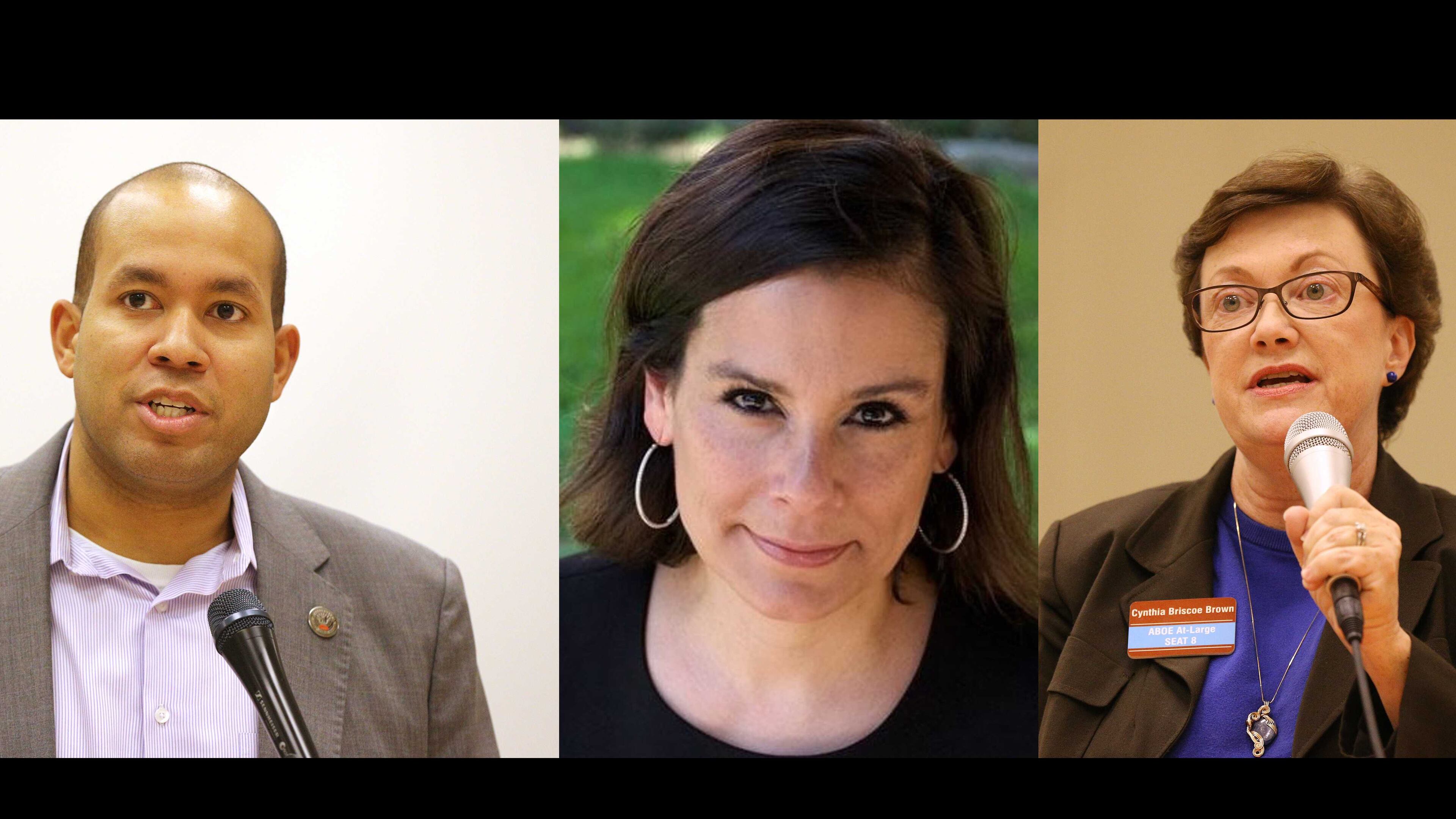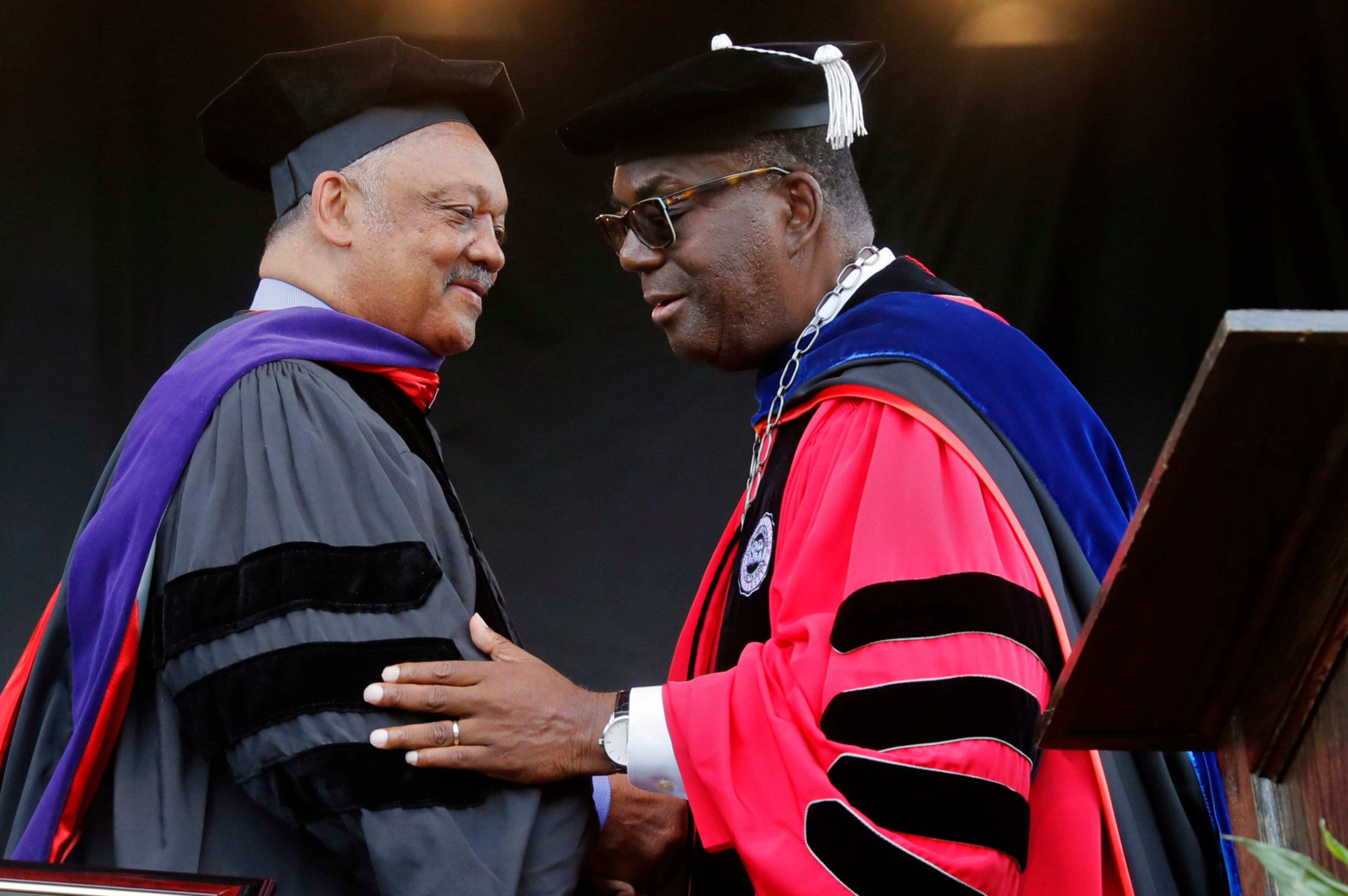As APS eyes changes, nonprofit pays for board members’ Denver visit

A charter-friendly local nonprofit is picking up the tab to send three Atlanta school board members to Denver, where charter and other non-traditional types of schools have expanded dramatically.
Board members are considering an improvement plan, including features of Denver's model, that could trigger school closures, launch new schools and reshape how some Atlanta schools are run. The Thursday through Saturday trip comes less than two months before their expected vote.
Denver Public Schools is considered a pioneer in transformation efforts it says have led to student gains but which also brought controversy. Over about a decade, Denver has closed low-performing schools, opened more charter schools and given school leaders more flexibility. Charter and so-called "innovation" schools now account for half of Denver's roughly 200 schools.
Atlanta school board Chairman Jason Esteves and members Michelle Olympiadis and Cynthia Briscoe Brown plan to visit an elementary school, meet with former Denver school board members and talk with principals on the trip.
Esteves said he doesn’t think APS should copy Denver but “we’re looking to see what we can learn from Denver and other places.”
The board’s desire to see firsthand the Colorado system’s extensive changes is one reason some skeptics are paying attention to the visit.
The other reason is who’s paying for the trip.
The nonprofit RedefinED Atlanta already provided $235,000 to pay Foxhall Consulting Services to help APS develop its improvement plan. One of the consultants is a former high-level Denver district administrator.
In addition, RedefinED agreed to cover the cost of the trip at APS' request, said Ed Chang, the nonprofit's executive director. The trip is expected to cost several thousand dollars. Chang and another RedefinED staffer also are going.
That concerns Mary Palmer, who’s followed APS issues since her now-grown children were in school.
She’s also worried that RedefinED, which has offered grants to help start charter schools, and Chang, who founded an Atlanta charter school, will push charters as the solution to APS’ problems. Chang also sits on a roughly 50-member advisory committee providing feedback as APS creates its plan.
“It sounds a lot like ‘pay to play,’ ” Palmer said. “The voters and the taxpayers are nowhere to be seen in this process.”
Esteves and Chang dispute that. Chang said RedefinED wants to make sure every Atlanta student attends a great school, but it’s up to the school board to decide how to accomplish that.
“I can’t predict what is going to happen out of this plan at all, and it’s really not my job to do so,” said Chang.
“I’ve seen amazing charter schools. I’ve seen amazing traditional schools. I’ve seen really poor examples of both as well,” he said. “We can’t wholesale say, ‘The answer is this or that.’ ”
Esteves said the nonprofit’s support comes with no strings attached. “We have never talked about outcomes or expectations,” he said.
Paying for public initiatives with private dollars is increasingly common, said Sara Henderson, executive director of the watchdog group Common Cause Georgia. “Regardless of who is paying for it, if they are going to have an effect on the tax base then the tax base needs to be a part of the conversation,” she said.
The district has scheduled several community meetings to gather input before the board votes on a plan March 4.
At the core of the initiative is creating a rating system to gauge how well schools are performing. If approved, it would be phased in over the next two years. The scorecard being developed would be unique to Atlanta and distinct from the state's report card.
The ratings could take into account not just test results, but also school culture and how well schools support students’ social and emotional needs.
The board would decide what should happen to schools based on the rating.
Troubled schools could be closed or merged with higher-performing schools. Teachers could be replaced or an outside group hired to run the school.
Successful schools could be replicated or expanded. District leaders are considering a variety of options. They said nothing is set in stone.
APS officials also are considering giving schools and principals more freedom from central office mandates.
Such flexibility has been one hallmark of Denver’s approach. School leaders can pick their curriculum, choose what training teachers should get and have a say in which tests students take.
The district also wanted to give families more choices about where to send their children to school, said Jennifer Holladay, associate chief of portfolio management.
“What we’ve learned time and again is that the one-size-fits-all approach didn’t work for all kids. I think that was part of the impetus for us to try to break out of the box,” she said.
Denver uses its custom rating system to guide difficult decisions about low-performing schools.
The scorecard has come under fire from the Denver teachers union. It contends that frequent changes to the rating system lead to inconsistent results that make it hard to compare schools year after year.
It also alleges the ratings have been used to justify a school closure or serve a political purpose. The district and union are in heated contract negotiations over teacher pay.
Holladay said when it comes to the school rating system, the district continues to learn: “One of the hardest pieces of being a family of schools is to get that right.”
Denver’s graduation rates have gone up since it began its reform work, and Holladay pointed to a study that shows higher test scores. She acknowledged the district must do more to close the gap between white students and students of color.
All three Atlanta school board members headed to Denver said they want to see what’s happening there, but none said they intend to approve a carbon-copy in Atlanta.
Olympiadis said she supports APS’ current governance structure, which groups schools into clusters and lets parents and others serve on advisory teams. She wants to hear more about how Denver’s charter and other schools that are largely free from district control work with traditional schools.
Briscoe Brown said of the trip: “I truly don’t care where the dollars come from. What I want is the knowledge.”
By the numbers
Atlanta Public Schools
Enrollment: 52,000
Free/reduced-price lunch eligibility: 76 percent
Largest student ethnic groups: 74 percent black, 16 percent white, 7 percent Hispanic
Four-year 2018 graduation rate: 79.9 percent
Number of schools: 89
Denver Public Schools
Enrollment: 87,000
Free/reduced-price lunch eligibility: 67 percent
Largest student ethnic groups: 55 percent Hispanic, 24 percent white, 13 percent black
Four-year 2017 graduation rate: 66.6 percent
Number of schools: 213
‘Excellent Schools Project’
Atlanta Public Schools is developing a rating system to measure how schools are doing and coming up with a plan for what will happen to schools that succeed or fail. A community meeting to gather public input will take place at 6 p.m. Jan. 22 at Sutton Middle School. The board is expected to vote on the plan March 4.
Where RedefinED Atlanta gets its money
The nonprofit’s money is administered through the Community Foundation for Greater Atlanta. It receives funding from:
Arthur M. Blank Family Foundation
Kendeda Fund
Nonami Foundation
Wilbur and Hilda Glenn Family Foundation
Sartain Lanier Family Foundation
Joseph B. Whitehead Foundation
Source: RedefinED Atlanta



